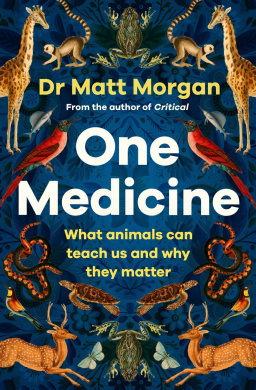Description
Preface Introduction Monarchs and Sciences Monarchs’ Involvement in Sciences Imperial Family Members’ Contributions to Sciences and Culture in Japan Chapter 1 His Majesty, the Emperor Showa (Hirohito) -The first of a family of biologists inherited for three generations. He was a specialist in hydrozoans and slime molds and discovered about 200 new species of various Phyla. He published 9 original papers including two voluminous monographs on hydrozoans and was involved in the publication of over 20 books on marine organisms in the Sagami Bay and on plants in Nasu and Suzaki. 1-1 The Personal History of the Emperor Showa 1-2 Days learning at Study, Crown Prince’s Palace 1-3 Days Serving as the Crown Regent and Opening the Imperial Biological Laboratory 1-4 Why Did the Emperor Find His Research Target in Biology? 1-5 The Emperor Showa Setting His Heart on Devoting Himself to the Study of Taxonomy 1-6 What is Hydrozoa? 1-7 Fruitful Encounter with Myxomycetes and Kumagusu Minakata 1-8 Biological Laboratory of the Imperial Household 1-9 Collecting Marine Organisms in Sagami Bay, a worldwide Repository 1-10 History of the Imperial Collecting Boats 1-11 Animals and Plants Living in the Imperial Palace and National Tree-planting Ceremony 1-12 Botanical Collection at Nasu and Suzaki 1-13 Revisit to Europe and First Visit to U.S. by the Emperor Showa 1-14 Emperor Showa’s Later Life 1-15 Achievements of the Emperor Showa 1-16 Evaluation of the Emperor Showa’s Achievements 1-17 Involvement in Biology of the Empress Kojun and the Former Imperial Princesses Chapter 2 The Current Emperor (Akihito) and Prince Hitachi -The second-generation biologists. The current Emperor Akihito, the first son of Hirohito, has interested in gobies and has classified them both morphologically using characters which he examined and molecular phylogenetically using DNA. The Prince Hitachi, the second son of Hirohito, has also studied biology and contributed to the development of comparative oncology. 2-1 The Imperial Palace and Villas 2-2 The Imperial Family and Horses 2-3 The Zoological Institute and Botanical Institute, Faculty of Science, the University of Tokyo 2-4 The Personal History of the Present Emperor, Akihito 2-5 The Period from the Marriage of the Crown Prince to the Era of Heisei 2-6 Why Did the Emperor Akihito Selectively Adopted Gobies? 2-7 The Fish Laboratory, the Crown Prince’s Palace and the Current Biological Laboratory of the Imperial Household 2-8 The lineage of Japanese Ichthyology and Tokyo University of Fisheries 2-9 The Emperor Akihito as One of Researchers 2-10 Local Salmon (Oncorhynchus nerka kawamurae), Bluegill (Lepomis macrochirus), Tilapia (Oreochromis niloticus) and Coelacanth (Coelacanthiformes) 2-11 The Emperor Akihito’s Achievements 2-12 Highlights and Evaluation of the Emperor Akihito’s Achievements 2-13 The Emperor Akihito’s Great Knowledge of Japanese History of Science 2-14 Biota of the Imperial Palace 2-15 The Personal History of the Prince Hitachi and His Research on Cancer Chapter 3 The Prince Akishino and the Former Princess Sayako Kuroda -The third -generation biologists. The Prince Akishino, the second son of Akihito, has been pursuing the origin of domestication of chicken from the perspectives of DNA analyses and folkloristics. He has also interested in giant catfish. Sayako Kuroda is a bird-watcher and is working at the Yamashina Institute for Ornithology. 3-1 The Personal History of the Prince Akishino 3-2 The Prince Akishino’s Achievements – Researches on catfish and molecular phylogenetics of domestic fowl 3-3 Taxonomic and Phylogenetic Researches 3-4 “Biostory”, the Journal of the Society of Biosophia Studies 3-5 The Prince Akishino as an Honorary President of International Biology Olympiad 3-6 Sayako Kuroda as a Researcher of Yamashina Institute for Ornithology 3-7 The Crown Prince’s Researches Chapter 4 The International Prize for Biology -The Prize founded in commemoration of longtime devotion of the Emperor Showa and the Emperor Akihito to biological research. 4-1 The International Prize for Biology Comparable to the Nobel Prize 4-2 Winners of the Prize 4-3 In the Hope That More Light Will Be Shed on Sciences, Biology and Basic Researches.






